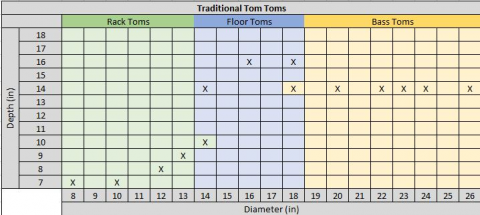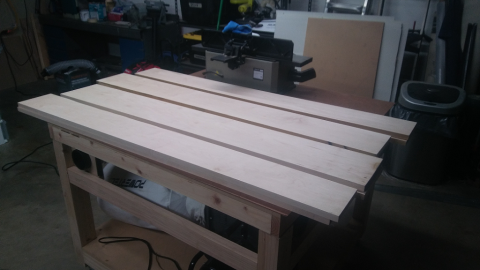Tom Tom Drums: Sizing and Other Considerations
Posted by Steve on Tuesday, 11 December 2018Like many drummers, I’ve not given a lot of thought to drum sizes other than small drums have a higher pitch and large drums have a lower pitch. I bought my last kit because its made of Birch and did not pay much attention to the tom tom diameters. After all, It has a small tom, a medium tom and a large tom. What else do I need to know? I’ve looked at some of the big drum companies to see how they dimension their drums. I’d like to make my drums similar to the industry standards. It turns out there are a few different sizing schemes in use by the big manufacturers.


